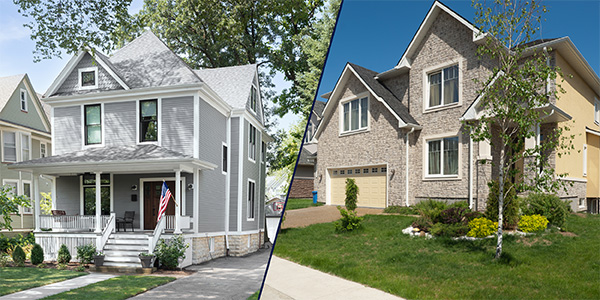Homebuyers
First-Time Homebuyer Myths
February 7, 2024
Buying a home is a major milestone in life. Still, it can also be overwhelming, especially for first-time homebuyers. There are many myths and misconceptions about buying a home that can prevent people from taking the plunge. In this article, we'll debunk six common myths about buying a home. And we'll provide the information you need to make informed decisions about your homeownership journey. From the myth of the perfect home to the myth of buying a home alone, we'll cover it all and help you get on the path to homeownership.
The Myth of the Perfect Home
When buying a home, many first-time homebuyers have a vision of the perfect place in mind. However, the truth is there is no such thing as the perfect home. Every home has pros and cons, and it's essential to be realistic about what you can afford and need.
Here are a few things to keep in mind when looking for a home:
- Location is key: Consider your commute to work, your proximity to schools and amenities, and the overall safety of the neighborhood.
- Space matters: Make sure the home has enough space for your needs now and in the future.
- Condition is important: Look for a home that is well-maintained and move-in-ready.
- Affordability is essential: Make sure you can afford the monthly mortgage payments and the other costs associated with homeownership, such as property taxes, insurance, and maintenance.
By being realistic about your expectations and making smart compromises, you can find a home you love that fits your budget.
The Myth of the Perfect Time to Buy
There is no such thing as a perfect time to buy a home. The real estate market constantly fluctuates, and there will always be pros and cons to purchasing a home at any given time. However, certain times may be more favorable for first-time homebuyers than others. For example, interest rates may be lower at certain times of the year, or more homes may be on the market during certain seasons. Ultimately, the best time to buy a home is when you are financially ready and find a home you love.
The Myth of the 20% Down Payment
The 20% down payment is one of the biggest barriers to homeownership for first-time buyers. Many believe they must save up a 20% down payment before buying a home, but this is not always true. Many loan programs allow for a down payment as low as 3% or even 0%. In addition, there are down payment assistance programs that can help first-time homebuyers come up with the money for a down payment.
For example, the Federal Housing Administration (FHA) offers a loan program that allows for a down payment as low as 3.5%. The FHA also offers a down payment assistance program that can provide first-time homebuyers with up to $10,000 in down payment assistance. In addition, many states and localities offer down payment assistance programs.
The Myth That You Must Have Perfect Credit to Buy a Home

A common misconception among first-time homebuyers is that they must have perfect credit to qualify for a mortgage. The reality is that lenders consider a range of credit scores, and loan options are available for those with less-than-perfect credit. FHA loans, for example, are designed to help buyers with lower credit scores and require a lower minimum credit score than Conventional loans. It's important to understand that while good credit can provide more favorable loan terms, having less-than-perfect credit means you can still live your dream of becoming a homebuyer.
The Myth of Buying a Home Alone
Many people believe that you need a partner to buy a home. However, this is not true. You can qualify for a mortgage and afford the monthly payments independently. There is a growing trend of single people buying homes. Buying a home alone gives you more freedom and flexibility in decision-making. You don't have to worry about compromising with a partner on location, size, or price. You can also move more quickly if you need to.
The Myth That New Homes Are Always Better Than Older Homes
A common belief among first-time homebuyers is that purchasing a new home is always preferable to buying an older one. This isn't necessarily true. While new homes offer modern amenities and may require fewer repairs initially, older homes can have their unique advantages. They often have character and architectural details that newer homes lack, and typically, being in established neighborhoods means more mature landscaping. Additionally, older homes may offer more competitive pricing and the potential for value appreciation through upgrades and renovations. Buyers must weigh the pros and cons of new versus old homes rather than assuming one is inherently better.
Debunking Homeownership Myths
Many myths fill the journey to first-time homeownership. However, by understanding the reality behind these myths, you can confidently approach this significant life decision. The dream of owning your first home is within reach.








 Smart Moves Start Here.
Smart Moves Start Here.